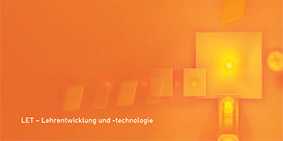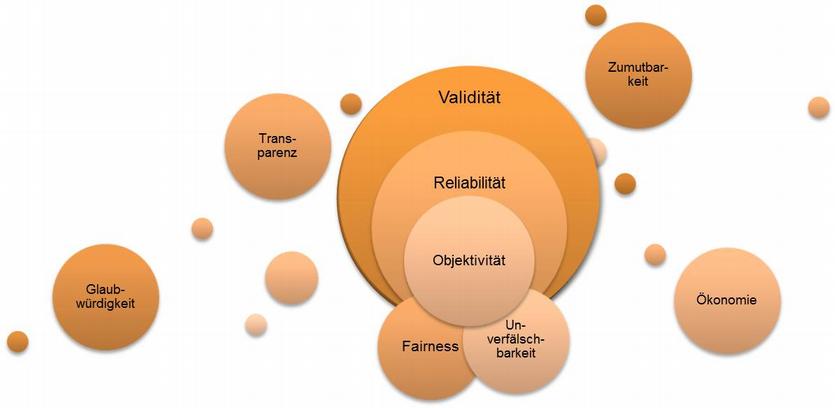Examination development
ETH Zurich faculty have much freedom in the design of their performance assessments. However, lecturers, examinees and ETH Zurich bodies possess clearly defined duties, processes and areas of responsibility in this context. We help them to harmonise their administrative duties and didactic goals.
General concepts
Examinations are among the chief tasks of faculty and comprise the most important milestones of students' early academic careers. Creating good examinations is an art, requiring both discipline-specific and pedagogical knowledge. See below for tools, texts and links which may help you to design your examinations expediently and efficiently.
Examinations are the yardstick by which the achievement of learning goals and competence acquisition are measured. Like all forms of measurement, they must satisfy a series of criteria to make their results meaningful: the measurement result must not be affected by the measurement process (objectivity); the measurement result must be reproducible and precise (reliability); and above all, the measurement result must represent a correct operationalisation of the object measured (validity). There must also be a guarantee that examinations are fairly run and that cheating can be prevented. A good examination is always expediently embedded in the teaching and learning context. It tests competences which have been previously presented and worked on together. The form and extent of the examination, the type of examination task and how it will be measured should be made clear and communicated to students in advance.
Orientation aid
Analyzing exam questions

Instructions for examiners for analyzing exam questions in Moodle quizzes
Download Analyzing exam questions (PDF, 389 KB)
Pseudonymisation of written exams

Instructions for examiners on using pseudonyms to anonymize examinations
Download Using pseudonyms to anonymize examinations (PDF, 135 KB)
Guidelines for conducting examinations

Important material on the theme of examinations
Download Guidelines for conducting examinations [in German] (PDF, 103 KB)
Creating written questions

Checklist for developing or checking written examination questions
Download Creating written questions [in German] (PDF, 123 KB)
Creating oral questions

Checklist for developing or checking oral examination questions
Download Creating oral questions (PDF, 120 KB)
Creating multiple choice questions

How to create good multiple choice questions
Download Checklist [in German (PDF, 126 KB)
Download Guidelines [in German] (PDF, 396 KB)
Conducting written examinations

Checklist for conducting written examinations
Download Conducting written examinations [in German] (PDF, 96 KB)
Conducting oral examinations

Checklist for conducting oral examinations
Download Conducting oral examinations [in German] (PDF, 123 KB)
Conducting MC examinations

Checklist for conducting MC examinations
Download Conducting MC examinations [in German] (PDF, 98 KB)
Grading written examinations

Checklist for grading written examinations
Download Grading written examinations [in German] (PDF, 119 KB)
Grading oral examinations

Checklist for grading oral examinations
Download Grading oral examinations [in German] (PDF, 120 KB)
Grading MC examinations

Checklist for grading MC examinations
Download Grading MC examinations [in German] (PDF, 121 KB)
Guidelines grading

Guidelines on grading written examinations
Download Guidelines grading (PDF, 422 KB)
Checklist grading (appendix of guidelines)

Checklist on grading procedures and practical implementation
Download Checklist grading (PDF, 62 KB)
Example scoring chart (appendix of guidelines grading)

Example of a scoring chart in biology
Download Example scoring chart (PDF, 152 KB)
Glossary examination terms

Testing theory and pedagogical examination terms
Download Glossary examination terms [in German] (PDF, 182 KB)
Contact
Lehrentwicklung
Haldenbachstr. 44
8006
Zürich
Switzerland
